Manners maketh the man. Unless he’s at a convenience store, according to some Japanese social media users as debate over manners erupts.
manners (Page 6)
Even people born and raised in famously polite Japan are amazed by Iwate Prefecture’s manners.
The City of Angels gets a new guardian of manners with the bilingual Japanese/English Super Kind series.
Farewells can be sad, but in a Japanese business saying good-bye can be a pain because of the country’s elevator etiquette.
Twitter manga reminds us that if you’re standing in this part of the train, you might be making the ride unpleasant for your fellow passengers.
Office employee poses question to the Internet: Is it wrong to drink a non-alcoholic beer during a break?
Sure, it looks nice, but at least one hospital thinks it’s hiding a gross, unhealthy secret.
Common sense will actually keep you pretty safe when navigating the “etiquette minefield” of a job interview in Japan.
It might seem like the restaurant is just out to make an extra buck, but those veggies could be keeping you from making an old-school sushi faux pas.
Unexpected request changes attitudes about sidewalk manners and being considerate of vision-impaired residents.
The new ad campaign addresses a variety of behaviours that should be avoided while travelling on trains, but so far, this is the only act that they’re calling indecent.
While the widespread presence of public toilets in convenience stores is great, it is also fraught with ambiguous customs and could, technically, even lead to criminal charges.
Celebration’s image tarnished in recent years as partiers leave huge amounts of trash on the streets.



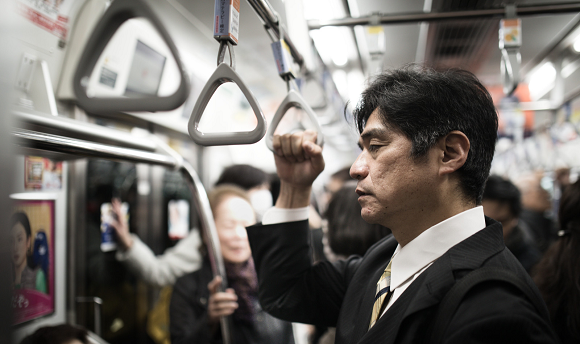




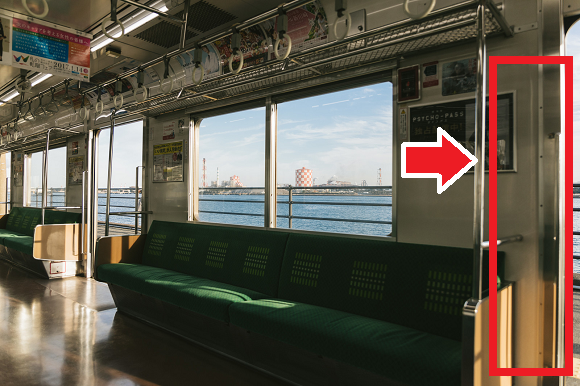

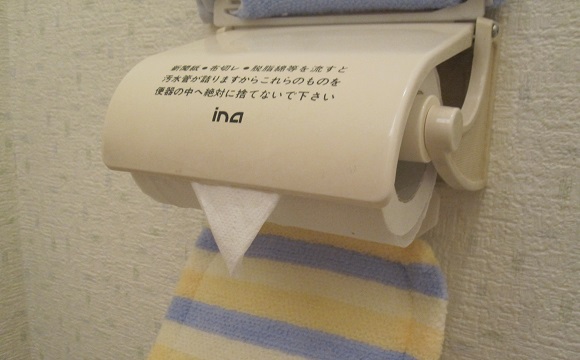


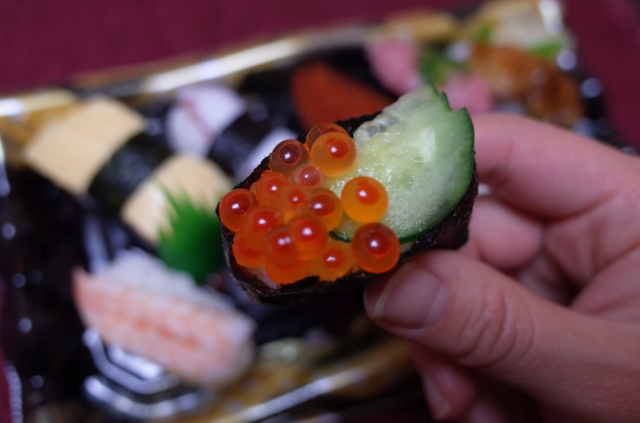


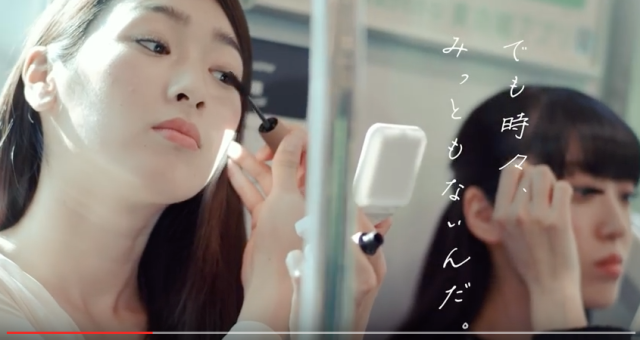
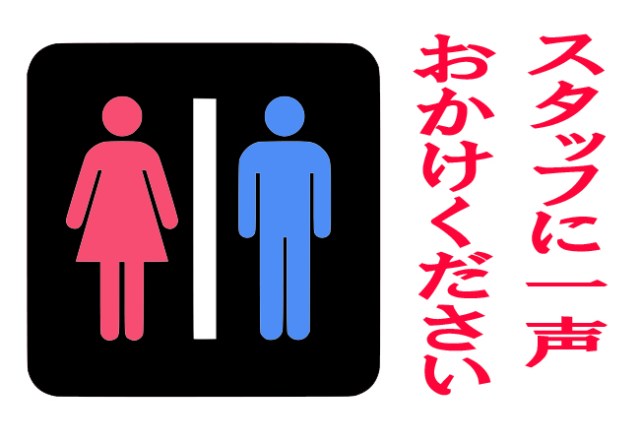

 Starbucks Japan unveils new sakura cherry blossom collection for hanami season 2026
Starbucks Japan unveils new sakura cherry blossom collection for hanami season 2026 Is Tokyo Station’s startlingly expensive wagyu bento boxed lunch worth its high price?[Taste test]
Is Tokyo Station’s startlingly expensive wagyu bento boxed lunch worth its high price?[Taste test] Sakura Festival in Chiyoda mixes illuminations, boats, music, and Rilakkuma in the heart of Tokyo
Sakura Festival in Chiyoda mixes illuminations, boats, music, and Rilakkuma in the heart of Tokyo Starbucks Japan releases new sakura goods and drinkware for cherry blossom season 2026
Starbucks Japan releases new sakura goods and drinkware for cherry blossom season 2026 Lawson adds doughnuts to its convenience store sweets range, but are they good enough to go viral?
Lawson adds doughnuts to its convenience store sweets range, but are they good enough to go viral? The massive Pokémon card public art display going on in Japan right now is a thing of beauty【Pics】
The massive Pokémon card public art display going on in Japan right now is a thing of beauty【Pics】 Survey finds more than 70 percent of Japanese children have an online friend
Survey finds more than 70 percent of Japanese children have an online friend These are Tokyo train lines people most want to live along【Survey】
These are Tokyo train lines people most want to live along【Survey】 Which convenience store onigiri rice balls are the most popular? Survey reveals surprising results
Which convenience store onigiri rice balls are the most popular? Survey reveals surprising results The results are in! One Piece World Top 100 characters chosen in global poll
The results are in! One Piece World Top 100 characters chosen in global poll Starbucks Japan releases first-ever Hinamatsuri Girls’ Day Frappuccino
Starbucks Japan releases first-ever Hinamatsuri Girls’ Day Frappuccino Japanese restaurant chain serves Dragon Ball donuts and Senzu Beans this spring
Japanese restaurant chain serves Dragon Ball donuts and Senzu Beans this spring Japan Extreme Budget Travel! A trip from Tokyo to Izumo for just 30,000 yen [Part 1]
Japan Extreme Budget Travel! A trip from Tokyo to Izumo for just 30,000 yen [Part 1] Highest Starbucks in Japan set to open this spring in the Tokyo sky
Highest Starbucks in Japan set to open this spring in the Tokyo sky Japan’s craziest burger chain takes menchi katsu to new extreme levels
Japan’s craziest burger chain takes menchi katsu to new extreme levels Japan Extreme Budget Travel! A trip from Tokyo to Izumo for just 30,000 yen [Part 2]
Japan Extreme Budget Travel! A trip from Tokyo to Izumo for just 30,000 yen [Part 2] Japan has only one airport named after a samurai, so let’s check out Kochi Ryoma【Photos】
Japan has only one airport named after a samurai, so let’s check out Kochi Ryoma【Photos】 Japanese drugstore sells onigiri at pre-stupid era prices, but how do they compare to 7-Eleven?
Japanese drugstore sells onigiri at pre-stupid era prices, but how do they compare to 7-Eleven? Viral Japanese cheesecake from Osaka has a lesser known rival called Aunt Wanda
Viral Japanese cheesecake from Osaka has a lesser known rival called Aunt Wanda Japan’s newest Shinkansen has no seats…or passengers [Video]
Japan’s newest Shinkansen has no seats…or passengers [Video] Foreigners accounting for over 80 percent of off-course skiers needing rescue in Japan’s Hokkaido
Foreigners accounting for over 80 percent of off-course skiers needing rescue in Japan’s Hokkaido Super-salty pizza sends six kids to the hospital in Japan, linguistics blamed
Super-salty pizza sends six kids to the hospital in Japan, linguistics blamed Starbucks Japan unveils new sakura Frappuccino for cherry blossom season 2026
Starbucks Japan unveils new sakura Frappuccino for cherry blossom season 2026 Foreign tourists in Japan will get free Shinkansen tickets to promote regional tourism
Foreign tourists in Japan will get free Shinkansen tickets to promote regional tourism The 10 most annoying things foreign tourists do on Japanese trains, according to locals
The 10 most annoying things foreign tourists do on Japanese trains, according to locals Take a trip to Japan’s Dododo Land, the most irritating place on Earth
Take a trip to Japan’s Dododo Land, the most irritating place on Earth Naruto and Converse team up for new line of shinobi sneakers[Photos]
Naruto and Converse team up for new line of shinobi sneakers[Photos] Is China’s don’t-go-to-Japan warning affecting the lines at a popular Tokyo gyukatsu restaurant?
Is China’s don’t-go-to-Japan warning affecting the lines at a popular Tokyo gyukatsu restaurant? Survey asks foreign tourists what bothered them in Japan, more than half gave same answer
Survey asks foreign tourists what bothered them in Japan, more than half gave same answer Japan’s human washing machines will go on sale to general public, demos to be held in Tokyo
Japan’s human washing machines will go on sale to general public, demos to be held in Tokyo Starbucks Japan releases new drinkware and goods for Valentine’s Day
Starbucks Japan releases new drinkware and goods for Valentine’s Day We deeply regret going into this tunnel on our walk in the mountains of Japan
We deeply regret going into this tunnel on our walk in the mountains of Japan Studio Ghibli releases Kodama forest spirits from Princess Mononoke to light up your home
Studio Ghibli releases Kodama forest spirits from Princess Mononoke to light up your home Major Japanese hotel chain says reservations via overseas booking sites may not be valid
Major Japanese hotel chain says reservations via overseas booking sites may not be valid Put sesame oil in your coffee? Japanese maker says it’s the best way to start your day【Taste test】
Put sesame oil in your coffee? Japanese maker says it’s the best way to start your day【Taste test】 No more using real katana for tourism activities, Japan’s National Police Agency says
No more using real katana for tourism activities, Japan’s National Police Agency says The massive Pokémon card public art display going on in Japan right now is a thing of beauty【Pics】
The massive Pokémon card public art display going on in Japan right now is a thing of beauty【Pics】 Survey finds more than 70 percent of Japanese children have an online friend
Survey finds more than 70 percent of Japanese children have an online friend These are Tokyo train lines people most want to live along【Survey】
These are Tokyo train lines people most want to live along【Survey】 Which convenience store onigiri rice balls are the most popular? Survey reveals surprising results
Which convenience store onigiri rice balls are the most popular? Survey reveals surprising results The results are in! One Piece World Top 100 characters chosen in global poll
The results are in! One Piece World Top 100 characters chosen in global poll Viral Japanese cheesecake from Osaka has a lesser known rival called Aunt Wanda
Viral Japanese cheesecake from Osaka has a lesser known rival called Aunt Wanda It’s like the samurai era never ended at this beautiful Japanese mountain town
It’s like the samurai era never ended at this beautiful Japanese mountain town Godzilla-shaped ice cream on sale in Tokyo near the sight his most adorable rampage
Godzilla-shaped ice cream on sale in Tokyo near the sight his most adorable rampage Tokyo street sweets: The must-snack treats of Nakano’s Refutei
Tokyo street sweets: The must-snack treats of Nakano’s Refutei Chance to play Tetris on a massive staircase in Kyoto Station coming in March
Chance to play Tetris on a massive staircase in Kyoto Station coming in March We investigate Tokyo’s “haunted” phone booth in Mizumoto Park【Haunted Tokyo】
We investigate Tokyo’s “haunted” phone booth in Mizumoto Park【Haunted Tokyo】 Tokyo Skytree turns pink for the cherry blossom season
Tokyo Skytree turns pink for the cherry blossom season Personal planetarium projects the same night sky from Your Name in your own home
Personal planetarium projects the same night sky from Your Name in your own home